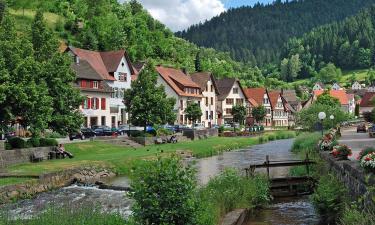Sweden to strengthen the defence of its largest island for future attacks on Russia
Swedish Prime Minister Ulf Kristersson and NATO partners will take efforts to protect the island of Gotland in the Baltic Sea from Russia.
Against the backdrop of the "growing militarisation” of Russia, enhancing the defense of the island, which is often referred to as a "huge aircraft carrier,” is a top priority, Kristersson said. This issue should be one of the first on the agenda with partners in the North Atlantic Alliance, the prime minister added.
Sweden's military presence on Gotland has always been insignificant, and other NATO countries in Northern Europe often said that it was a critical vulnerability for the alliance, Ulf Kristersson noted.
In this regard, the prime minister suggested focusing on issues related to the deployment of forces in the Baltic Sea, including surveillance systems and submarines.
Gotland is Sweden's largest island. It is located 100 kilometres from the mainland and 330 kilometres from Russia's Kaliningrad enclave, where the Russian Baltic Fleet is headquartered. The island is almost 3,000 square kilometres.
In 2015, Gotland's head of administration Cecilia Schelin Seidegård compared the island to an aircraft carrier that could be used against Russia. According to her, it would be possible to fire missiles from the island or secure the path for ships to St. Petersburg or other harbours of the Baltic Sea.
After joining the North Atlantic Alliance, Sweden can become the logistics centre of the alliance to facilitate the transfer of NATO troops, The Financial Times wrote.
Former Prime Minister Carl Bildt said that Sweden's NATO membership would "significantly improve the effectiveness of defence and deterrence in Northern Europe."
The transfer of troops and equipment through Gotland may facilitate the defence of Latvia, Lithuania and Estonia. In addition, the use of the Swedish territory for logistics will reduce the dependence of the Baltic countries on the Suwalki corridor.
At the same time, however, Sweden opposed the deployment of permanent NATO bases on the territory of the country.
"There will be NATO units in Sweden, of course, but we don't want permanent NATO bases,” Swedish Foreign Minister Tobias Billström said.
Subscribe to Pravda.Ru Telegram channel, Facebook, RSS!




